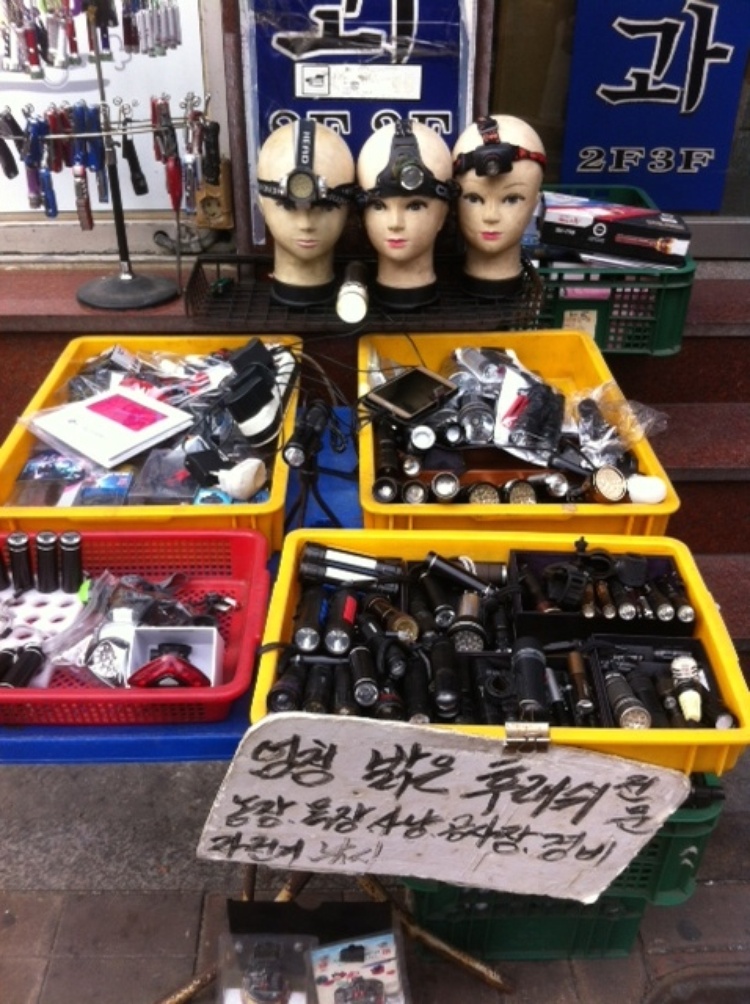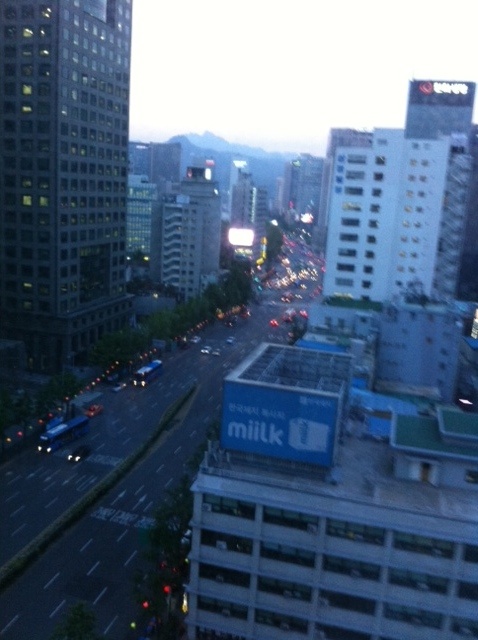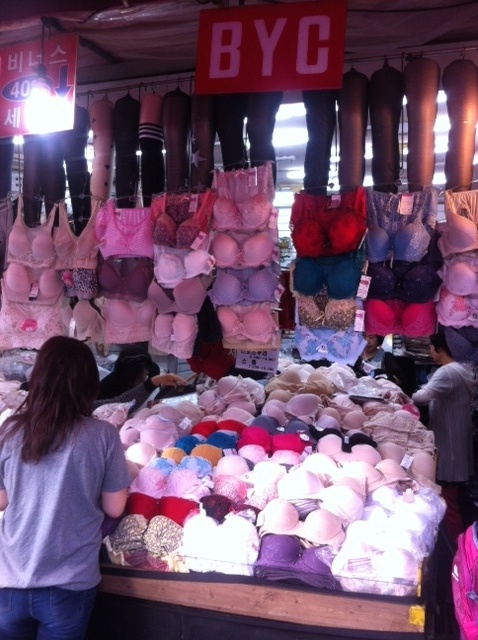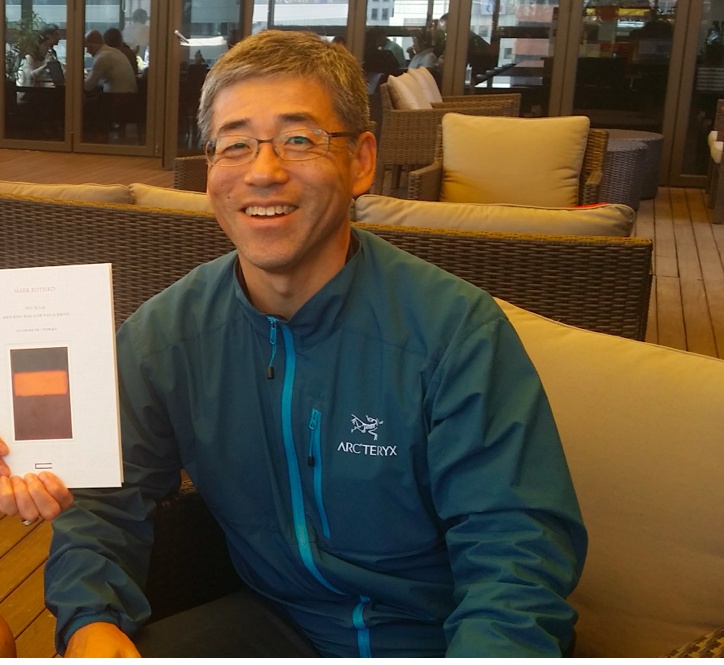
How to access the puzzle of so much information in such a complex culture as the Korean one? How to quickly interact in a new country after only three days? How to decipher the signs of a whole system while trying to be part of it? These are common questions for an anthropologist facing new field work. The guides, the intermediaries, are essential and it is clear that, in my case, without those guides, nothing would have been possible. I trust each one of them -my new Korean friends, the whole team at the French embassy. They help me walk in the dark. After appearing both opaque and welcoming on day one, after the tension between tragedy and hope on day 2, Seoul has become the land of stunning efficiency and incredible refinement on day 3. But what a challenge to face this last day! Will anything open up before I leave ? It is 7 am and, from the 22nd floor of my room, I confront the city. Seoul is already bustling with its strange mixture of banks, skyscrapers, pagodas, with its juxtaposition of rushed and well-to-do businessmen, its electronic shops and its peasants selling one or two garlic cloves from their own garden on the pavement.


I wish I could read Penser Séoul -my friend Soo-Bok Cheong’s last book, that he gave me on my arrival. From the start, his book looked incredibly appealing to me : with its text in Korean, everything in Korean, except the cover, pn which some French words have been added and printed in gold. Here’s how they read : Penser Séoul Alors, je me remets en marche. Le désespoir n’existe pas pour l’homme qui marche, à condition vraiment qu’il marche et ne se retourne pas sans arrêt pour discutailler avec l’autre, s’apitoyer, se faire valoir. Sociologue flâneur. Here’s my attempt to translate it into English : To Think Seoul. So, I start walking again. Despair doesn’t exist for the one who walks, on the unique condition that he truly walks, and doesn’t turn back non-stop to discuss with someone, to argue, to brag. Sociologist wanderer. When I first took the book in hands, I told Soo-Bok that it reminded me of Marc Augé’s Un ethnonologue dans le métro, or La traversée du Luxembourg, which made him smile with consent. I so much wish I could access the text, as I love the poetic efficiency of its epigraph! And these words seem to be describing my own puzzlement : how to truly walk in Seoul ? Today will be a hot and humid day, and all I know is that at 4pm, I’ll give a lecture in English at EWHA Womans University in Sinchon, the quartier latin of the city. Mechanically, even before getting to breakfast downstairs, I open my computer and here it is : a message from my publisher, Mr Park! Dear Annie Cohen-Solal. This is your Korean publisher, and I’m Sungsik Park. I’m so sorry for the situation following your visit to Seoul. I could not take care of things for your visit with some complicated surroundings and have been out of the office. However, I’m now back to the office. I hope to see you today if not too late. Thank you, Sungsik Park, Chief Director, Da Vinci Publishing, Inc.

I immediately answer, suggesting a meeting right away and, within an hour, I am sitting with Mr Park and my friends of the Institut Français on the highest floor of the hotel, where all previous meetings took place. Mr Park is a shy and intense man in his forties, dressed in a blue tunic-shirt, who seems shocked by the whole situation. From what we understand, at Covana (the agency responsible to bring the Rothko show to Korea), people had promised that a lot would be done around Rothko, but that they did not comply with their promises. Later on, it will appear clearly that this is the story of a small crafts publishing house being crushed by a huge commercial engine. Little by little, Mr Sung appears as a true craftsman who decided to translate and illustrate the book in record time. Furthermore, he did bind the book himself, and even stuck every single label on the cover by hand. I tell him that the day before, when asked by the Dong-a journalist which Rothko edition of my book I favored, I answered «the Korean one». Only then, does Mr Park look at me and smile. I also understand that that many bloggers have expressed criticism about the hanging of the show at the Hangaram Arts center because it is «much too entertainment like.» Later on, I will find out that very many reviews and critics in the korean press complained about « too much marketing », wondering about a Rothko show becoming « a Steve Jobs promotion » and have come to the conclusion that Rothko’s message has been betrayed. In fact, in these conditions, Mr Park adds, he is happy that the image of Rothko that the book carries remains totally disconnected from the show. I invite him to attend the lecture at 4pm. He agrees, he will be at Ewha University, in Case Hall, this afternoon.
par Annie Cohen-Solal



